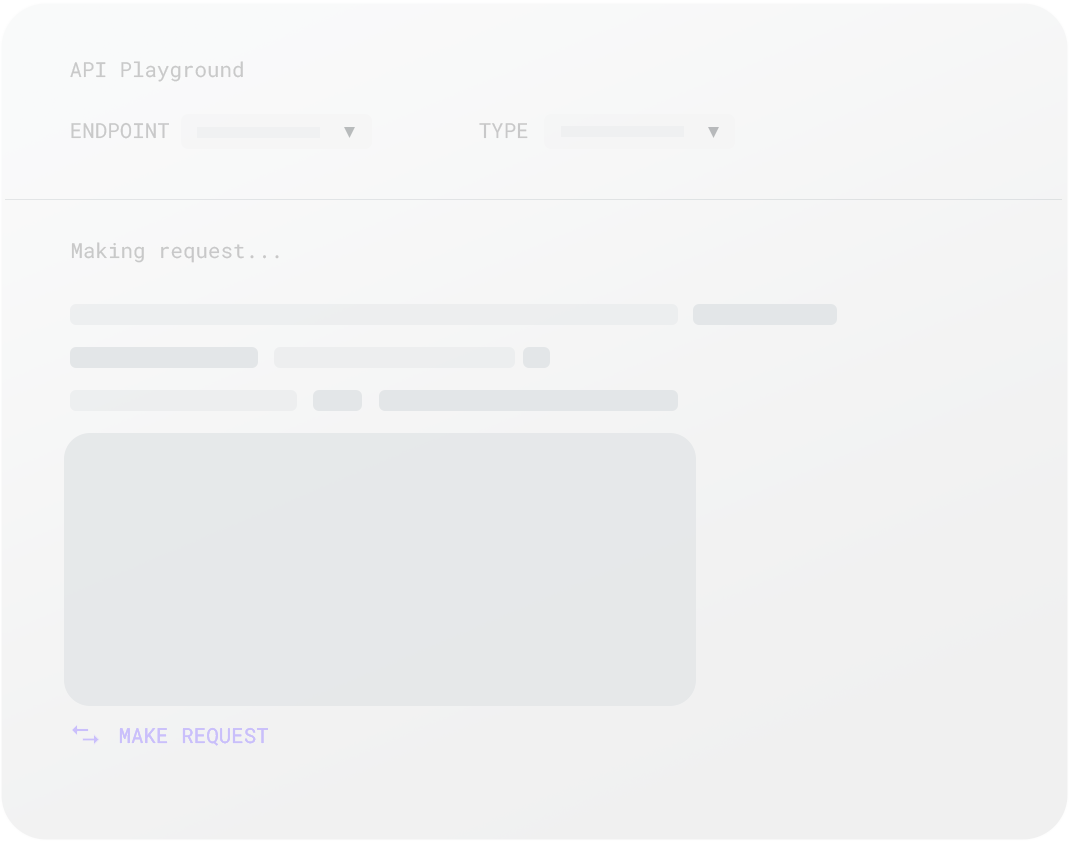API
SQL Injection and XSS Payload Detector API
The API caters to a wide range of programming languages, including but not limited to: C, Clojure, C#, GO, Java, JavaScript, Kotlin, Node.js, Objective-C, OCaml, PHP, PowerShell, Python, R, RapidQL, Ruby, Shell, and Swift.
Introduction
API Overview
This API exposes a single /detect endpoint (supports POST and GET) for analyzing any string or payload. Send user inputs, form fields, query strings, or entire request bodies and get back a structured JSON verdict containing:
The original
input(normalized/decoded)riskcategory (safe,suspicious,exploit attempt)score(0–100)
It’s designed to be dropped into existing security pipelines: WAF rules, API gateways, server-side validators, CI/CD security checks, and real-time logging/alerting systems.
Use cases:
Block or challenge high-risk requests at the edge (WAF / CDN)
Prevent stored XSS in comment forms, editors, and user profiles
Validate inputs in authentication flows and query builders
Feed risk scores into SIEMs and alerting rules
Key Features:
SQLi & XSS Pattern Detection → Recognizes classic and modern attack payloads (e.g., 1 OR 1=1, UNION SELECT, <script>alert(1)</script>).
Obfuscation Decoding → Handles URL-encoded, Base64, Unicode-escaped, and hex-encoded payloads before analysis.
Risk Categorization & Scoring → Returns safe, suspicious, or exploit attempt with a 0–100 score to guide actions.
GET & POST Support → Flexible integration for quick checks (GET) or production payload analysis (POST).
Lightweight & Fast → Minimal latency for real-time blocking and inline validation.
JSON Response → Clean, machine-readable results for automation and dashboards.
Additional Highlights:
Tunability → Scoring thresholds and sensitivity can be adjusted in your WAF or middleware to reduce false positives.
Integration-Friendly → Works well with popular WAFs, API gateways, server middleware, and CI pipelines.
Robust Error Handling → Prevents crashes on malformed inputs; returns clear error messages for invalid payloads.
Encoding-Resilient → Detects hidden attacks that try to slip past naive filters using encoding or obfuscation.
Actionable Output → Use risk + score to block, challenge (CAPTCHA), sanitize, log, or escalate to SOC. Minimal False-Positive Design → Heuristics tuned to balance security with usability — suitable for production use.
Extensible → Easily add new signature patterns or rules for bespoke threats and vertical-specific attacks.
Endpoints
- /detect
Endpoints Overview
Detect Risk
Detect and classify potentially malicious input payloads — including SQL injection, XSS (Cross-Site Scripting), and other injection patterns. Use it to pre-scan user input, harden forms, vet uploads, and reduce attack surface by flagging dangerous strings before they reach your backend.
Endpoint:
GET & POST: /detect
Parameters:
| Name | Type | Required | Description |
|---|---|---|---|
input | string | ✅ Yes | The input string to analyze. Example payloads include SQL fragments, HTML/JS snippets, or encoded payloads. (Example shown below uses Base64-encoded "<script>alert(1)</script>" → PHNjcmlwdD5hbGVydCgxKTwvc2NyaXB0Pg==.) |
Tip: For transport safety or to test binary/complex payloads, encode the input in Base64. The API handles Base64-decoded payloads for analysis. If you send raw text, the API will analyze it directly.
Python Requests Example:
import requests
url = "https://sql-injection-xss-payload-detector-api.p.rapidapi.com/detect"
payload = {
# raw or base64-encoded input; here we send raw HTML/JS as an example
"input": "<script>alert(1)</script>"
}
headers = {
"content-type": "application/json",
"x-rapidapi-host": "sql-injection-xss-payload-detector-api.p.rapidapi.com",
"x-rapidapi-key": "YOUR_RAPIDAPI_KEY"
}
response = requests.post(url, json=payload, headers=headers)
print(response.json())Response Example:
{
"input": "PHNjcmlwdD5hbGVydCgxKTwvc2NyaXB0Pg==",
"risk": "suspicious",
"score": 50
} Subscribe to SQL Injection & XSS Payload Detector API
Subscribe to SQL Injection & XSS Payload Detector API
Subscribe to SQL Injection & XSS Payload Detector API
Subscribe to SQL Injection & XSS Payload Detector API
Subscribe on RapidAPI
Head over to our API listing on RapidAPI and click the “Subscribe” button. Choose a plan that fits your needs — from free testing to full-scale production.
Get Your API Key
Once subscribed, grab your unique X-RapidAPI-Key from the "Endpoints" tab. You’ll use this key to authenticate all your requests securely.
Start Making Requests
Use the provided code snippets or integrate directly into your app. Send requests to any available endpoint and enjoy seamless access to our powerful API features.

Frequently Asked Questions
What is the SQL Injection & XSS Payload Detector API used for?
It detects and classifies malicious SQL injection (SQLi) and cross-site scripting (XSS) payloads in user inputs or request data, helping developers prevent exploits and strengthen application security
How does the API determine risk levels?
It applies heuristic rules and pattern matching, decoding obfuscated payloads (URL, Base64, Unicode, hex). Each request gets a risk category (safe, suspicious, or exploit attempt) and a risk score (0–100).
Can this API be integrated with a Web Application Firewall (WAF)?
Yes, it’s designed for WAF integration, as well as security dashboards, API gateways, and input validation layers.
What types of requests are supported?
The API supports both GET (quick tests, debugging) and POST (production payload analysis). POST is recommended for real use cases.
Does it detect obfuscated or encoded attacks?
Absolutely. The API automatically normalizes and analyzes encoded payloads (URL-encoding, Base64, Unicode escapes, hex) before classification.




